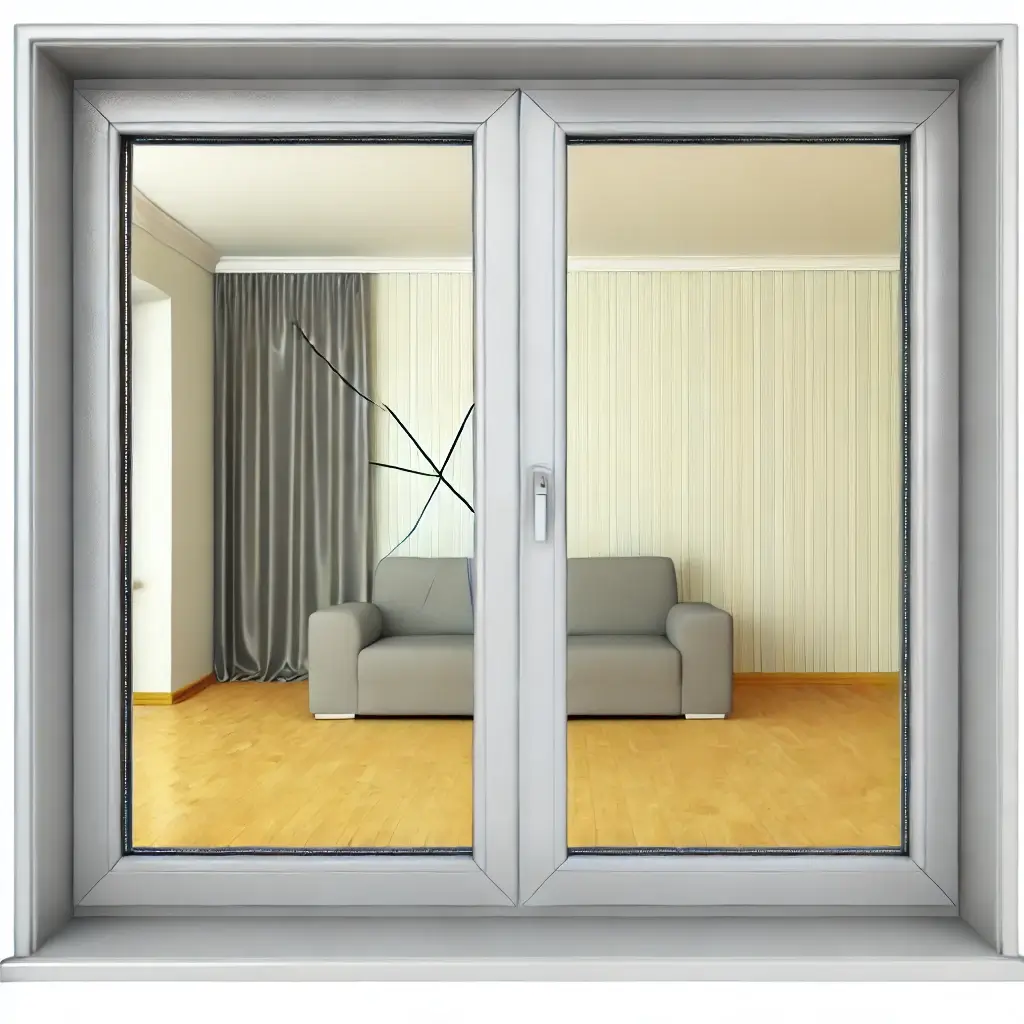Windows are a vital part of any home, providing natural light, ventilation, and a connection to the outdoors. However, when windows start to crack, it can be concerning and lead to various issues, from energy inefficiency to safety hazards. In this blog, we’ll explore the common reasons why house windows crack, answer frequently asked questions, and offer solutions to prevent and address window cracking.

Common Causes of Window Cracking
1. Temperature Fluctuations
Windows, especially those made of glass, expand and contract with temperature changes. Sudden or extreme temperature fluctuations can cause thermal stress, leading to cracks. This is often seen in climates with hot summers and cold winters.
2. Structural Movement
Houses naturally settle over time, and this movement can exert pressure on window frames and glass. If the frame is not flexible enough to accommodate this movement, the glass may crack.
3. Poor Installation
Improper installation of windows can create points of stress. If the frame is not level or if the glass is not properly seated, it can result in uneven pressure and eventually cause cracking.
4. Impact Damage
Accidental impacts from objects like baseballs, tree branches, or even birds can crack window glass. Even minor impacts can weaken the glass, making it more susceptible to cracking over time.
5. Manufacturing Defects
Occasionally, windows may have inherent defects from the manufacturing process. Imperfections in the glass or frame can make windows more prone to cracking, even under normal conditions.
6. Age and Wear
Over time, windows can become more fragile due to wear and tear. Older windows may have degraded seals, frames, or glass, making them more susceptible to cracking.
Frequently Asked Questions
Q: How can I tell if a crack is due to temperature fluctuations? A: Temperature-related cracks often appear as stress cracks, typically running perpendicular to the edge of the glass. These cracks may form quickly during extreme temperature changes.
Q: What should I do if my window cracks? A: If a window cracks, it’s important to address it promptly. Cover the crack with clear packing tape to prevent further damage and call a professional to assess and repair or replace the window.
Q: Can I prevent my windows from cracking? A: While you can’t entirely prevent all types of window cracking, regular maintenance, proper installation, and choosing high-quality windows can reduce the risk. Installing window films can also help by reducing thermal stress.
Q: Are certain types of windows more prone to cracking? A: Single-pane windows are generally more prone to cracking than double-pane or tempered glass windows. Investing in high-quality, energy-efficient windows can help mitigate this issue.
Q: How does structural movement cause window cracks? A: As a house settles or shifts due to soil movement or foundation issues, the pressure exerted on window frames can lead to cracks, especially if the frames are rigid or improperly installed.
Q: Is it safe to ignore small cracks in windows? A: Ignoring small cracks can lead to bigger problems. Small cracks can expand over time, compromising the window’s integrity and potentially leading to higher energy bills and security risks.
Q: What are the signs of poor window installation? A: Signs of poor installation include uneven gaps around the frame, drafts, difficulty opening or closing the window, and visible stress on the glass.
Q: How can I protect my windows from impact damage? A: Using window screens, shutters, or impact-resistant glass can help protect your windows from accidental damage caused by external objects.
Q: What should I consider when replacing cracked windows? A: When replacing windows, consider factors such as energy efficiency, durability, and proper installation. Choose windows that are suited to your climate and home’s structural needs.
Conclusion
Understanding the reasons behind window cracking can help you take proactive steps to protect your home’s windows. Regular maintenance, proper installation, and choosing high-quality windows are key to preventing and addressing window cracks. If you notice any cracks in your windows, don’t hesitate to seek professional help to ensure your home remains safe, energy-efficient, and visually appealing.
By addressing every potential cause and answering common questions, we aim to provide comprehensive information that ensures your home remains in top condition, soaring to the top of search engine results with valuable and thorough content.
For more information on window replacement and maintenance, visit Texas Made Windows and More and stay updated with our latest tips and solutions.
Ready to Protect Your Home? Contact Texas Made Windows and More today for a free consultation and find out how we can help you maintain beautiful, crack-free windows. Call us at (210) 461-2066 or visit our contact page.
